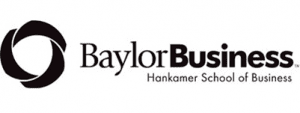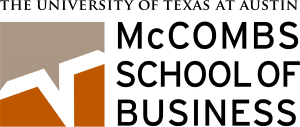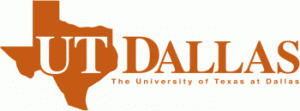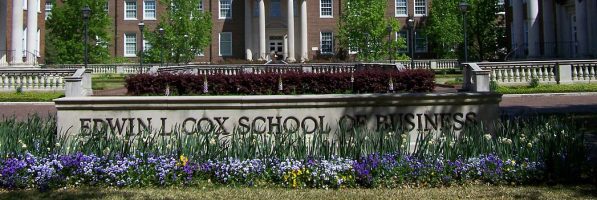The 5 Best Dallas Executive MBA Programs

In the world of business, the Executive MBA degree is akin to an Iron Man decathlon in which one simultaneously attempts work, life, and school with equal gusto.
Designed to reskill and get mid-career professionals up to speed on the latest management trends, the value of an EMBA as a useful negotiation tool is undisputed—especially if you can get an employer to fit the bill. If not, it’ll cost you but the investment is one that will certainly go a long way to paving a future leadership position way up the corporate ladder.
And when it comes to corporate ladders, the greater Dallas metro area has got an embarrassment of riches. The region is HQ to Exxon Mobil, AT&T, American Airlines, Southwest, Texas Instruments, JC Penney, and Gamestop, among many others on the 2017 Fortune 500. You could also do a lot worse with the area’s cultural offerings, especially if you like football, art, and authentic Tex-Mex.
Let’s take a closer look at five best Dallas Executive MBA programs:

Baylor’s Hankamer School of Business
The Baylor Hankamer School of Business 48-credit, 21-month, $91,000 EMBA is designed for mid-level executives. The program emphasizes leadership skills, decision-making, human resource management, global strategic management, and contemporary business issues within a cohort lock-step structure. The 50-credit, $94,000 EMBA Healthcare curriculum does the same but specifically tailored to the healthcare sector. EMBA students arrive from a variety of companies, including Apple, AT&T, Xerox, Wells Fargo, Microsoft, Coca-Cola, Wal-Mart, and American Airlines. The EMBA does not require GMAT or GRE scores but applicants must have at least five years of work experience.

Southern Methodist’s Cox School of Business
The SMU Cox 21-month, $120,150 part-time EMBA prepares experienced business leaders to take their career to the next level by helping them move into higher executive level positions or to expand their company’s reach. The EMBA emphasizes general management practices, strategy, finance within real-world applications. Applicants are expected to have at least eight years of work experience but GMAT/GRE scores are not required.

UT-Austin’s McCombs School of Business
The curriculum for McCombs School of Business 2-year, 42-credit, $116,800 EMBA is based on a cohort system in which groups of five students “encourage teamwork and development of leadership skills” among one another and each student is paired with a mentor from the previous year’s class. The EMBA covers effective communication, risk and change management and business ethics. Of the 68 students in the EMBA class of 2018, the average age is 37 and the average work experience is 14 years.

UT-Dallas’ Naveen Jindal School of Management
The UT Dallas Naveen Jindal School of Management 21-month, 53-credit, 5-semester, $85,000 EMBA was developed to prepare “experienced professionals for careers in upper management.” The cohort structure centers on “the fundamentals of business, marketplace advancement, leadership, corporate assets strategy, and data use and interpretation.” The average UT Dallas EMBA student is 40 and with an average work experience of 16 years. Applicants must have a minimum of eight years “professional business experience with international and management experience,” although GMAT or GRE scores are not required.

UT-Arlington College of Business
The UT Arlington College of Business 15-month, 37-credit, $74,500 EMBA (and accompanying Asian Business Studies certificate) is ideal for helping mid-level and upper-level managers and executives “develop the skills needed to move their company into global markets or to increase the company’s presence in a global market.” The EMBA focuses on the “skills and knowledge needed to run multinational firms, manage data, and develop effective teams that will help firms expand into global markets, maintain customer value, and build long-term customer relationships.”
Its cohort structure allows students to gain “extensive experience working collaboratively as part of a team,” which extends to the two-week Chinese immersion trip in which students develop a project specific to the region.
The average UT Arlington EMBA student is 38 with an average of 16+ years of work experience. Executive MBA students generally pay for the program through employer sponsorship, although there are scholarship and financial aid opportunities available.
Which Dallas MBA Programs Offer the Best Starting Salary?

It’s naive to think that folks who earn their MBA degree don’t expect to earn a decent salary. After years of balancing work, studying, and life, an MBAs starting salary is the cherry on top of the grad school sundae. For those looking to work in or are attending school in the Dallas metro, here are the programs that can help you find that well-deserved pay day the fastest.
High Rollers
McCombs School of Business – University of Texas at Austin
According to statistics provided by the McCombs School of Business school, the average full-time MBA student goes on to earn a starting salary of $113,481 following graduation. The average full-time MBA grad also receives a signing bonus of $27,564. A full breakdown of McCombs full-time MBA salary statistics can be found here.
The McCombs School of Business is usually ranked among business schools in the U.S. for the number of MBA graduates who earn job offers. In fact, career planning is also built into the curriculum of the full-time MBA. During the first year students take a class called Strategic Career Planning—a course that was created to best prepare students to make career choices and help them achieve their career goals. The class teaches students skills like interview training and marketing and networking techniques.
Cox School of Business – Southern Methodist University
According to SMU’s MBA Placement Data, graduating MBAs at the Cox School of Business earn an average salary of $96,587. Recent Cox MBAs have been offered jobs at companies such as Amazon, At&T, Capital One, Deloitte, and more.
Students have the option of customizing their education by completing up to two concentrations in addition to the MBA program. While all full-time students are enrolled in the General Business concentration, additional majors include: accounting, business analytics, finance, general business, information technology and operations management, management, marketing, real estate, and strategy and entrepreneurship. MBAs majoring in strategy, general management, leadership, and consulting earn a bit more, averaging $108,333 to start, while accounting, finance, and real estate majors earn a bit less, averaging $94,173 annually.
Next Tier
Neeley School of Business – Texas Christian University
The TCU Neeley School of Business full-time MBA program is designed for professionals who may not necessarily have a background in business, but are interested in changing careers or transitioning into a new field where business and management knowledge would be necessary. According to StartClass, TCU MBAs earn an average salary of $89,579 post-graduation.
To help secure a job with a well-paying salary, MBA students have access to The Neeley Professional Development Center and the Graduate Career Services Center. The Professional Development Center provides Neeley students with personal and professional training and coaching for presentations, business writing, and career preparation. Meanwhile, the Graduate Career Services Center provides students with resume help, job search, networking events, career coaching, interview prep, and skill building programs.
CHECK THIS OUT: “The Most Affordable MBA Programs in Dallas“
Commerce College of Business – Texas A&M University
Different from the Mays School of Business on A&M’s main campus, the Commerce College of Business is located about one hour northeast of the Dallas metro. PayScale data reveals that Texas A&M Commerce MBAs earn a starting salary of $89,393.
Commerce students have access to the office of Career Development, which offers students special events such as networking nights, job shadow programs, business etiquette dinners, career fairs, and job search workshops. The CD can also help students with resume and cover letter consultation, LinkedIn consultation, mock interviews, career assessment, and counseling and employment application
Naveen Jindal School of Management – University of Texas at Dallas
Students who graduate with an MBA degree from the Jindal School of Management at UT Dallas earn an average starting salary of $86,644.
According to U.S. News, MBA graduates from the Naveen Jindal School of Management have the best salary-to-debt ratio of any ranked school. As stated above, Jindal MBAs earn an average starting salary of $86,644 and have an average student loan debt of $7,132—an earnings-to-debt ratio of 12.148. The average ratio for ranked business schools that reported the data is 1.986.
Up-And-Coming
Hankamer School of Business – Baylor University
Baylor Hankamer School of Business MBA graduates earn a reported average starting salary of nearly $65,000. Recent Baylor full-time MBA graduating class had a 64 percent job placement rate at the time of graduation and 86 percent placement rate 90 days after graduation.
University of North Texas College of Business
PayScale reports that the average starting salary for North Texas College of Business MBA grads is also $65,000. North Texas features the Career Center at the Business Leadership Building where students receive one-on-one advising, career planning, and career exploration help from graduate advisors. These advisors help students with résumé and cover letter writing as well as mock interviews.
SMU Cox Names Ana Rodriguez Director of Latino Leadership Initiative

Ana Rodriguez, alumna of the Southern Methodist University Cox School of Business in Dallas, Texas, was recently named as the school’s newest Director of the Latino Leadership Initiative.
A Guide to the Best Dallas Accelerated MBA Programs

To earn an MBA you have to be committed. That means spending your time, money and your energy to attending class, completing homework and participating at all levels of the program. For some, two or more years is too much time to give when their job and family is also taken into consideration. That’s where an accelerated MBA program can be incredibly helpful. It allows you to complete your MBA as quickly and efficiently as possible—typically within one year—so you can get back on the job market and on with your career.
If you want to earn an MBA but you don’t want to turn everything in your life upside down to make it possible, then an accelerated MBA might be for you. To help, here’s our newest guide to the top Dallas accelerated MBA programs. Continue reading…
Finding An MBA In Texas: Dallas Vs. Houston

Can a full-time MBA program differ per city? While you might assume that they’re all the same, the truth of the matter is that location can play a significant role in what’s available at any given program. Different cities focus on different industries or even job functions based on the expertise and companies within the metro area.
The Best Dallas Part-Time MBA Programs

It’s well understood that both the cost and time commitment of an MBA can be often overwhelming, and for many students losing up to two years of income can be a deal breaker when it comes to their education. Thankfully, part-time MBA programs are an excellent opportunity for students to earn an advanced business degree while still working full time. With flexible class schedules and the chance to complete the degree on your own schedule, a part-time MBA can be the perfect option for a student to continue in their full-time job without needing to pass up the chance for an incredible business education.
